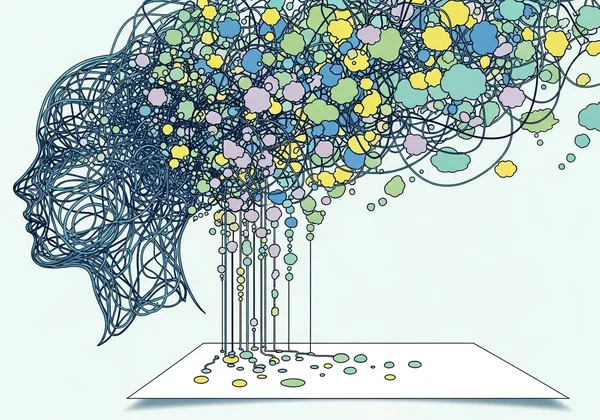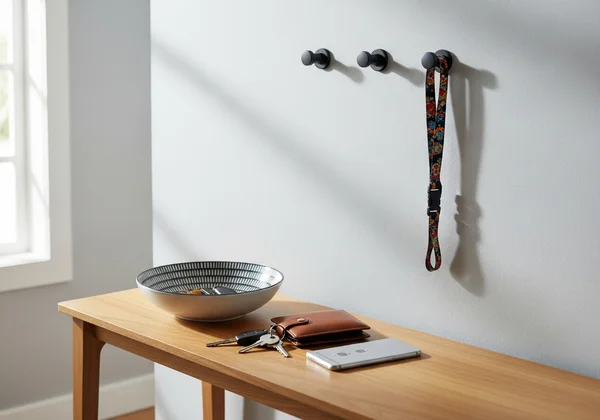ADHS im Erwachsenenalter: 10 Bewältigungsstrategien nach dem Test
August 26, 2025 | By Julian Navarro
Sie sind aus gutem Grund hier gelandet. Vielleicht haben Sie gerade einen Online-Test abgeschlossen und die Ergebnisse gehen Ihnen durch den Kopf. Oder vielleicht kämpfen Sie schon Ihr Leben lang mit Herausforderungen in Bezug auf Fokus, Organisation und Motivation. Sie fragen sich vielleicht: Was nun? Die Reise zum Verständnis Ihrer einzigartigen Gehirnverdrahtung ist zutiefst persönlich, aber Sie sind nicht allein dabei, herauszufinden, wie Sie das Leben mit ADHS meistern können.
Dieser Leitfaden ist Ihr nächster Schritt. Er ist eine Sammlung von zehn praktischen, nicht-medizinischen Bewältigungsstrategien, die Sie sofort anwenden können. Es geht nicht darum, zu ändern, wer Sie sind; es geht darum, einen unterstützenden Rahmen zu schaffen, der es Ihnen ermöglicht, aufzublühen. Bevor Sie eintauchen, sollten Sie, wenn Sie gerade erst Ihre Reise der Selbstfindung beginnen, einen ADHS-Selbsttest als wertvollen ersten Schritt zur Klarheit in Betracht ziehen.
Grundlegende ADHS-Bewältigungsstrategien für tägliche Klarheit
Bevor Sie sich größeren Lebensveränderungen widmen, ist es wichtig, eine solide Grundlage zu schaffen. Diese ersten Strategien sollen Ihnen helfen, die alltägliche mentale Unordnung und die zeitbezogenen Herausforderungen zu bewältigen, die oft mit ADHS im Erwachsenenalter einhergehen. Sie sind einfach, effektiv und können ein sofortiges Gefühl der Kontrolle vermitteln.

1. Der 'Brain Dump': Bringen Sie Ihre Gedanken nach außen
Der ADHS-Verstand wird oft mit einem Browser verglichen, der zu viele geöffnete Tabs hat. Ein „Brain Dump“ ist der Prozess, diese Tabs zu schließen, indem Sie jeden einzelnen Gedanken aus Ihrem Kopf auf Papier oder in ein digitales Dokument (z.B. Notizen-App) bringen. Sorgen, To-Do-Listen, zufällige Ideen und Erinnerungen – schreiben Sie alles ohne Wertung oder Organisation auf.
Diese Praxis entlastet Ihr Arbeitsgedächtnis und reduziert das überwältigende Gefühl von mentalem Chaos. Indem Sie Ihre Gedanken externalisieren, können Sie sie objektiv betrachten und mit der Priorisierung beginnen. Machen Sie es zu einer täglichen Gewohnheit, entweder morgens, um Ihren Tag zu planen, oder abends, um Ihren Geist für den Schlaf zu klären. Dieser einfache Akt ist ein Eckpfeiler des effektiven Zeitmanagements.
2. Strukturieren Sie Ihren Tag mit Zeitblockierung
„Zeitblindheit“ oder die Schwierigkeit, den Verlauf der Zeit wahrzunehmen, ist ein häufiges Merkmal bei Erwachsenen mit ADHS. Zeitblockierung ist ein wirkungsvolles Gegenmittel. Anstatt einer einfachen To-Do-Liste planen Sie Zeitblöcke für bestimmte Aufgaben direkt in Ihren Kalender ein.
Blockieren Sie zum Beispiel 9:00-9:45 Uhr für „Dringende E-Mails beantworten“, 10:00-11:00 Uhr für „Arbeit an Projekt X“ und 11:00-11:15 Uhr für „Dehnen und Wasser trinken“. Diese Methode bietet einen klaren visuellen Fahrplan für Ihren Tag, reduziert die Entscheidungsermüdung und schafft die Struktur, die Ihr Gehirn braucht. Sie verwandelt abstrakte Ziele in konkrete, terminierte Handlungen.
3. Verwenden Sie die Pomodoro-Technik, um Prokrastination zu besiegen
Das Beginnen einer großen oder uninteressanten Aufgabe kann aufgrund von Herausforderungen mit der Exekutivfunktion unmöglich erscheinen. Die Pomodoro-Technik überwindet diese Barriere. Die Methode ist einfach: Wählen Sie eine Aufgabe, stellen Sie einen Timer auf 25 Minuten ein und arbeiten Sie ohne Unterbrechung daran, bis der Timer abläuft. Machen Sie dann eine 5-minütige Pause.
Diese Technik ist effektiv, weil sich eine 25-minütige Verpflichtung überschaubar anfühlt, was Ihnen hilft, die anfängliche Trägheit zu überwinden. Sie hilft auch, die Konzentration zu verbessern, indem sie Ihr Gehirn darauf trainiert, in kurzen, konzentrierten Schüben zu arbeiten. Das Wissen, dass eine Pause immer gleich um die Ecke ist, macht es einfacher, bei der Aufgabe zu bleiben und Schwung aufzubauen. Wenn Sie sich fragen, wo Sie anfangen sollen, beginnen Sie mit einer Einschätzung, um Ihre Merkmale besser zu verstehen.
4. Erstellen Sie einen „Ablagebereich“ für wichtige Gegenstände
Wie viel Zeit verbringen Sie mit der Suche nach Ihren Schlüsseln, Ihrer Geldbörse oder Ihrem Telefon? Das Einrichten eines „Ablagebereichs“ kann diese Zeit zurückgewinnen und den täglichen Frust reduzieren. Legen Sie einen bestimmten Platz in der Nähe Ihrer Haustür fest – einen kleinen Tisch, eine Schale oder eine Reihe von Haken –, wo Sie Ihre wichtigsten Gegenstände immer ablegen, sobald Sie hereinkommen.
Diese Strategie automatisiert den Prozess, den Überblick über Ihre wichtigsten Besitztümer zu behalten. Sie nutzt den Aufbau von Gewohnheiten, um Gedächtnisherausforderungen auszugleichen. Mit der Zeit müssen Sie nicht mehr darüber nachdenken, wo Ihre Schlüssel sind; Sie wissen, dass sie auf dem Ablagebereich liegen und bereit für Ihre nächste Abreise sind.

Wie man ADHS-Symptome in der Umgebung bewältigt
Ihre Umgebung hat einen erheblichen Einfluss auf Ihre Fähigkeit, sich zu konzentrieren und zu funktionieren. Anstatt gegen Ihre Umgebung anzukämpfen, können Sie sie anpassen, um Ihr Gehirn zu unterstützen. Diese Strategien konzentrieren sich auf externe Veränderungen, um ADHS-Symptome zu bewältigen und einen Raum zu schaffen, der Produktivität und Ruhe fördert.
5. Legen Sie Zonen für Schlüsselaktivitäten fest
Wenn Ihr Wohnraum gleichzeitig Ihr Arbeits- und Entspannungsbereich ist, verschwimmen die Grenzen, was es schwierig macht, umzuschalten. Das Schaffen unterschiedlicher Zonen für verschiedene Aktivitäten kann Ihrem Gehirn starke Umwelthinweise geben.
Haben Sie einen bestimmten Stuhl und Schreibtisch nur für die Arbeit – keine sozialen Medien oder Mahlzeiten dort erlaubt. Legen Sie einen bequemen Sessel zum Lesen und Entspannen fest. Halten Sie Ihr Schlafzimmer bildschirmfrei und ausschließlich dem Schlaf gewidmet. Diese „Zonierung“ hilft Ihrem Gehirn, bestimmte Orte mit bestimmten Denkweisen zu assoziieren, was es einfacher macht, sich für die Arbeit zu aktivieren oder für die Ruhe herunterzufahren.
6. Minimieren Sie Ablenkungen mit Technik und Tools
In der heutigen Welt sind Ablenkungen konstant. Für das ADHS-Gehirn, das von Natur aus zu Neuem neigt, können sie lähmend sein. Seien Sie bewusst dabei, eine ablenkungsarme Umgebung zu schaffen.
Dies könnte bedeuten, in geräuschunterdrückende Kopfhörer zu investieren, um akustisches Chaos auszublenden. Verwenden Sie Website- und App-Blocker während Ihrer Arbeitsblöcke, um gedankenloses Scrollen zu verhindern. Schalten Sie alle nicht wesentlichen Benachrichtigungen auf Ihrem Telefon und Computer aus. Indem Sie proaktiv Versuchungen beseitigen, sparen Sie wertvolle mentale Energie für die Aufgaben, die wirklich wichtig sind.
7. Nutzen Sie den Hyperfokus zu Ihren eigenen Bedingungen
Hyperfokus – die Fähigkeit, in einen Zustand intensiver, anhaltender Konzentration zu gelangen – wird oft als ADHS-Superkraft angesehen. Er kann jedoch auch zu einer Belastung werden, wenn Sie Stunden an einer unwichtigen Aufgabe verlieren. Der Schlüssel liegt darin, ihn bewusst zu nutzen.
Identifizieren Sie die Themen oder Projekte, die Ihren Hyperfokus auslösen, und planen Sie dedizierte, ununterbrochene Zeit ein, um sich damit zu beschäftigen. Wichtig ist, externe Alarme oder Erinnerungen einzustellen, um Sie daraus zu holen. Dies ermöglicht es Ihnen, Ihre natürliche Fähigkeit zur tiefen Arbeit zu nutzen, ohne andere wichtige Verantwortlichkeiten zu vernachlässigen, und verwandelt eine potenzielle Falle in ein mächtiges Produktivitätswerkzeug.
Fortgeschrittene ADHS-Tipps für Erwachsene für langfristiges Wohlbefinden
Mit ADHS erfolgreich zu sein, bedeutet nicht nur Produktivitätshacks; es geht um ganzheitliches Wohlbefinden. Diese fortgeschrittenen Strategien konzentrieren sich auf Ihren inneren Zustand, Ihre emotionale Gesundheit und Ihre Unterstützungssysteme. Sie sind entscheidend für den Aufbau von Resilienz und die Verbesserung Ihrer allgemeinen Lebensqualität. Ein ADHS-Quiz für Erwachsene kann ein großartiger Ausgangspunkt für diese tiefere Selbsterforschung sein.

8. Üben Sie achtsames Selbstmitgefühl
Viele Erwachsene mit ADHS tragen ein Leben lang Kritik in sich – von anderen und von sich selbst. Dies kann zu einem geringen Selbstwertgefühl und einem harten inneren Dialog führen. Selbstmitgefühl ist die Praxis, sich selbst mit der gleichen Freundlichkeit zu behandeln, die Sie einem Freund entgegenbringen würden.
Wenn Sie einen Fehler machen oder vom Kurs abkommen, erkennen Sie das Gefühl der Frustration ohne Urteil an. Erinnern Sie sich daran, dass Sie ein Mensch sind und dass diese Herausforderungen Teil Ihrer Neurologie sind, nicht ein moralisches Versagen. Achtsamkeit kann Ihnen helfen, negative Gedankenmuster zu erkennen, damit Sie sie bewusst durch unterstützendere ersetzen können.
9. Finden Sie eine ADHS-freundliche Trainingsroutine
Bewegung ist eine der effektivsten nicht-pharmakologischen Strategien zur Bewältigung von ADHS-Symptomen. Körperliche Aktivität erhöht den Dopamin- und Noradrenalinspiegel im Gehirn – die gleichen Neurotransmitter, die von Stimulanzienmedikamenten beeinflusst werden –, was die Konzentration und Stimmung verbessern kann.
Die beste Übung ist die, die Sie tatsächlich machen werden. Wenn der Gedanke an eine sich wiederholende Fitnessstudio-Routine Sie mit Schrecken erfüllt, finden Sie etwas Engagierteres. Probieren Sie Mannschaftssportarten, Tanzkurse, Klettern, Kampfsport oder Wandern aus. Die Neuheit, das soziale Engagement oder die wechselnde Landschaft können es viel einfacher machen, konsequent zu bleiben.

10. Verbinden Sie sich mit einem Body Double oder einer Selbsthilfegruppe
Body Doubling ist eine überraschend effektive Strategie, bei der eine andere Person stillschweigend neben Ihnen arbeitet, entweder persönlich oder virtuell. Ihre bloße Anwesenheit vermittelt ein Gefühl sanfter Verantwortlichkeit und hilft, Ihre Aufmerksamkeit zu verankern, was es einfacher macht, Aufgaben wie Rechnungen bezahlen oder das Haus putzen zu beginnen und dabei zu bleiben.
Über das Body Doubling hinaus kann die Verbindung mit anderen, die die ADHS-Erfahrung verstehen, lebensverändernd sein. Suchen Sie nach Online-Foren, lokalen Selbsthilfegruppen oder Gruppen-Coaching-Programmen. Der Austausch von Erfahrungen und Strategien mit Gleichgesinnten bestätigt Ihre Schwierigkeiten und erinnert Sie daran, dass Sie Teil einer lebendigen, kreativen Gemeinschaft sind.
Ihre Reise zur Klarheit beginnt mit einem Schritt
Die Bewältigung von ADHS im Erwachsenenalter bedeutet nicht, ein Wundermittel zu finden, sondern ein personalisiertes Toolkit von Strategien aufzubauen, die für Sie funktionieren. Die zehn Tipps in diesem Leitfaden bieten einen starken Ausgangspunkt, um mehr Struktur, Fokus und Selbstfreundlichkeit in Ihr Leben zu bringen. Jede kleine Veränderung, die Sie umsetzen, ist ein Schritt in Richtung einer handhabbareren und erfüllteren Zukunft.
Denken Sie daran, Verstehen ist der erste und wichtigste Schritt. Wenn Sie es noch nicht getan haben, nehmen Sie an unserem kostenlosen, vertraulichen Online-ADHS-Quiz teil, um wertvolle Einblicke in Ihre eigenen Aufmerksamkeits- und Verhaltensmuster zu gewinnen. Diese Informationen können Sie befähigen, die richtigen Strategien zu wählen und Ihre Reise zur Klarheit noch heute zu beginnen.
Haftungsausschluss: Dieser Artikel dient nur zu Informationszwecken und stellt keine medizinische Beratung dar. Die bereitgestellten Informationen sind nicht als Ersatz für professionelle medizinische Beratung, Diagnose oder Behandlung gedacht. Das Quiz auf unserer Website ist ein Selbstbewertungstool und kann keine Diagnose stellen. Suchen Sie immer den Rat Ihres Arztes oder eines anderen qualifizierten Gesundheitsdienstleisters, wenn Sie Fragen zu einer medizinischen Erkrankung haben.
Häufig gestellte Fragen zum Leben mit ADHS
Woher weiß man sicher, ob man ADHS hat?
Der einzige Weg, um sicher zu wissen, ob Sie ADHS haben, ist eine umfassende Untersuchung durch einen qualifizierten Gesundheitsdienstleister, wie einen Psychiater, Psychologen oder Neurologen. Während Online-Tools wie unser kostenloses ADHS-Quiz eine wertvolle vorläufige Untersuchung bieten und Ihnen helfen können, zu entscheiden, ob Sie eine formelle Beurteilung wünschen, können sie eine klinische Diagnose nicht ersetzen. Eine professionelle Beurteilung umfasst in der Regel detaillierte Interviews, Symptom-Checklisten und eine Überprüfung Ihrer persönlichen Geschichte.
Wirken diese Bewältigungsstrategien bei allen Arten von ADHS?
Ja, diese zehn Strategien sind grundlegend und können für Personen im gesamten ADHS-Spektrum, einschließlich des unaufmerksamen, hyperaktiv-impulsiven und kombinierten Typs, von Vorteil sein. Während beispielsweise jemand mit vorwiegend unaufmerksamer ADHS den „Brain Dump“ und die Pomodoro-Technik am hilfreichsten für die Konzentration finden könnte, könnte jemand mit hyperaktiven Zügen eine ADHS-freundliche Trainingsroutine als wesentlich zur Bewältigung von Unruhe empfinden. Der Schlüssel ist, sie zu experimentieren und an Ihre spezifischen Herausforderungen und Stärken anzupassen.
Können diese Tipps auch bei Angstzuständen helfen, die mit ADHS einhergehen?
Absolut. Es gibt eine signifikante Überschneidung zwischen ADHS und Angstzuständen, und viele Menschen erleben beides. Strategien, die Struktur und Vorhersehbarkeit schaffen, wie Zeitblockierung und das Erstellen eines „Ablagebereichs“, können die Hintergrundangst reduzieren, die durch das Gefühl der Desorganisation oder des Kontrollverlusts entsteht. Ebenso sind Praktiken wie achtsames Selbstmitgefühl und regelmäßige Bewegung bewährte Methoden zur Bewältigung von Angstsymptomen, indem sie das Nervensystem beruhigen und die Emotionsregulation verbessern.